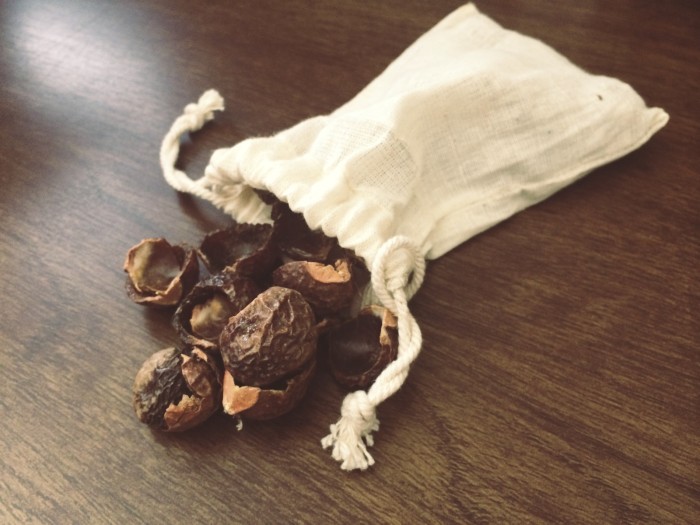A version of this article was previously published on Sunshine & Raine.
I recently engaged in a conversation about how ethical the production of soap nuts is. There was a rumor going around that since the consumption of soap nuts has increased worldwide, helping more conscious consumers become zero waste in their laundry process, the effects have negatively impacted the production side here in India.
Although I have no official sources to back up this information, I used my network here in north India, which is filled with soap nuts (get it?!), to hear what they had to say about the production of the natural cleaning agent. Using the Zero Waste India Facebook platform and picking the brains of my wonderful community of sustainable living advocates, I was able to get some info that I think would be useful for anyone who has posted the question, “just how ethical are soap nuts?”
Let’s be real here first – regardless of what the material is, if it suddenly gains popularity around the world based on trend, demand will impact how the production of the material will shift to keep up with consumer needs. Avocados are a perfect example of this. This incredible yummy and tropical fruit has become the millennial go-to, from toast to guacamole. Yet, avocado does not grow in most places where demand is highest. For example, Canada – we do not grow avocados. In the U.S.A, although they are able to grow avocados in the south, most avocados are being imported from Mexico and South America to keep up with demand. Plus, they are a seasonal fruit, therefore are not harvested year round. Not only does the avocado trend affect how quickly they need to be producing avocados south of the U.S. border, it’s causing serious harm to agriculture in “avocado zones”, leading to deforestation and a crazy increase in CO2 emissions being released in order to serve you breakfast.
What I’m trying to say here is that even though there is no official source about how ethical the production of soap nuts is, this critical thought is something to keep in mind when thinking about products you consume that are not native to your own country.
However, soap nuts have historically always been a part of Indian culture and used widely by many. Soap nuts, also referred to as soap berries, are grown on a small tree called Sapindus trees, usually found in the Himalayas but are also grown in Kerala.
A big takeaway from my conversations about soap nuts was that there is no commercial production of the trees as of yet, or that is noted/registered. I found this particularly fascinating since commercial production is really where you’re going to find the bad in everything (ahem, Monsanto). What typically happens with soap nuts is farmers will collect them once they fall off the tree and sell them in the market. Sometimes those without employment will collect and sell them as well. It was also mentioned that there is such an abundance of soap nuts that they often fall off the tree and just rot away, as consumerism has led many to buy liquid or bar laundry soap from convenient retailers in their cities and villages here in India.
Another topic that came up throughout this fun little investigation of mine was the idea that soap nuts don’t actually clean anything. This is incorrect. Soap nuts contain saponin, which is a natural foaming and cleaning agent. That being said, I’ve been using soap nuts for over two years and find them to be best used for cleaning clothing and floors. I do not recommend them for anything else. I’ve also tried both putting soap nuts in with my laundry in a cloth bag and boiling them to make liquid detergent. I found boiling them to make a liquid detergent works best.
Here’s my liquid detergent recipe:
- Boil 40 – 50 soap nuts in 6 cup of water
- Once the water has come to a boil, let is sit at half heat until the water boils down to 4 cups
- When the water has boiled down to 4 cups, turn off the burner and let it cool down
- Add 2 – 4 drops of lemon or lavender essential oil to add some scent to your clean laundry and floors
- Stir and strain the liquid into a reusable jar or container
- I recommend using about 1- 2 cups of liquid soap per load of laundry.
Please feel free to ask questions or add comments about soap nuts, below!
Related: Cleaning With Essential Oils Will Change Your Life. 4 DIY Recipes To Try
Zero Waste Kitchen Tools To Elevate Your Vegan Cooking—And Reduce Packaging
Get more like this–sign up for our newsletter for exclusive inspirational content!
__
Photo: Mary Hood Luttrell





